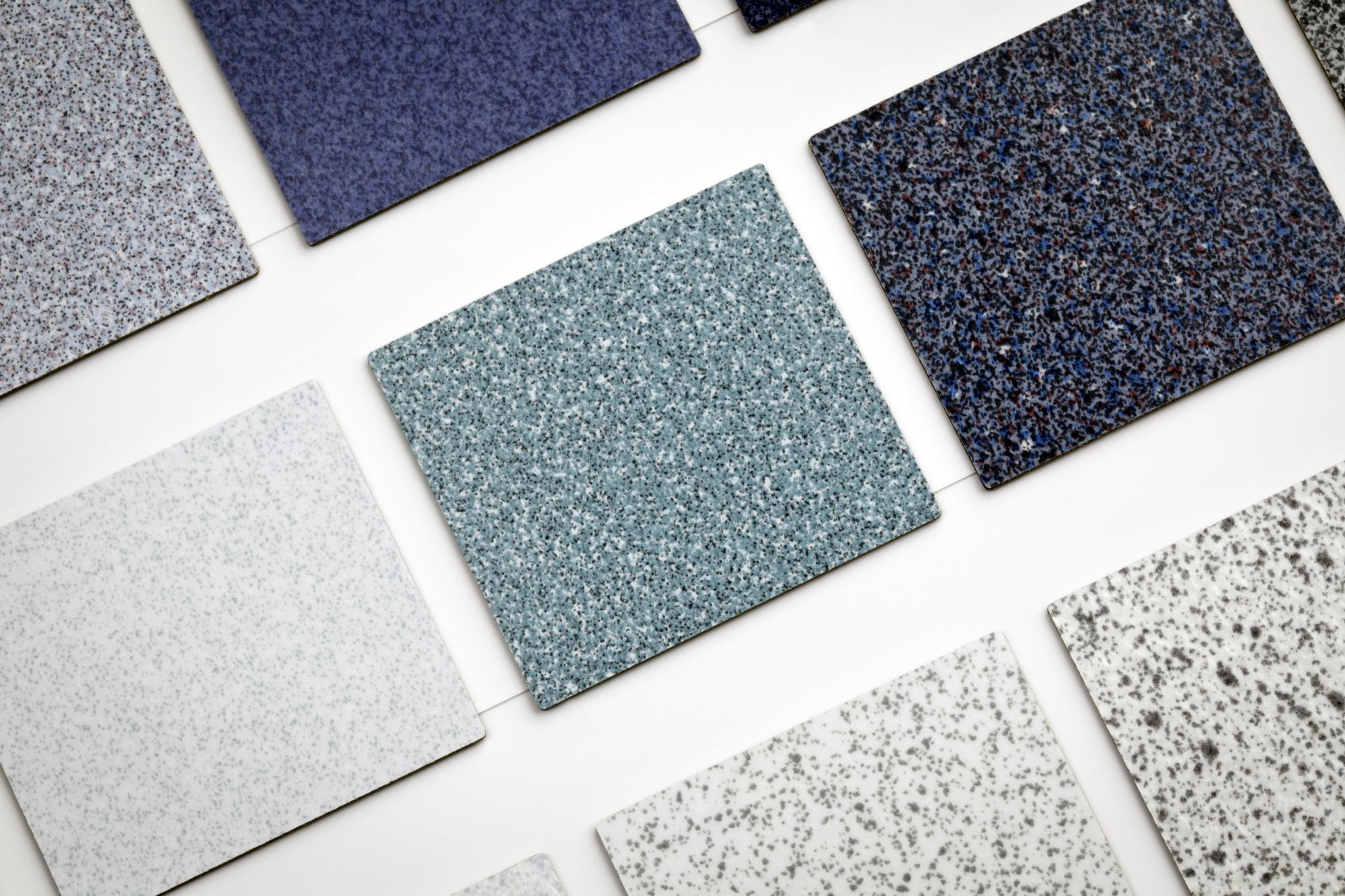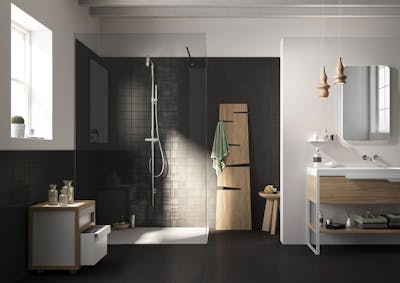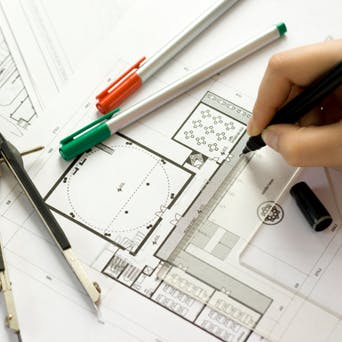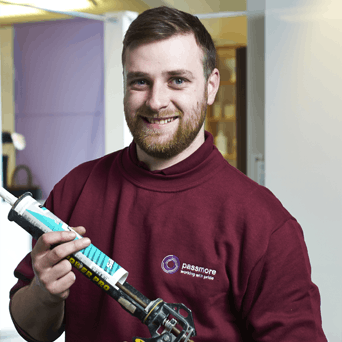How Much Does A Bathroom Renovation Cost? | More Bathrooms
Published: 9 May 2024
Are you dreaming of transforming your bathroom into a serene oasis where you can unwind after a long day? A bathroom renovation not only enhances your daily living experience but also adds value to your home. However, the prospect of renovation can be daunting, especially when it comes to budgeting. In this extensive guide, we'll explore the various factors that influence bathroom renovation costs, providing you with a comprehensive overview to help you plan your project effectively.
Understanding the average cost of bathroom renovation
Before diving into the specifics, it's essential to have a grasp of the average costs associated with bathroom renovations. While prices can vary significantly depending on factors like location, scope of work, and materials, having a rough estimate can serve as a helpful starting point for your budgeting process.
> Our Average: Typically falls around £12,000, though this can vary between £12,000 and £15,000.
> Our Luxury: For those looking for premium upgrades, costs can exceed £25,000.
> Market Average: On average, homeowners spend approximately £10,000 on bathroom renovations.
These figures provide a general overview of what you can expect to invest in your bathroom renovation project, but it's important to note that individual circumstances and preferences can significantly impact costs.

Factors that influence bathroom renovation costs
1. Size of the bathroom
The size of your bathroom is one of the most significant factors affecting renovation costs. A small guest bathroom will naturally require fewer materials and labour compared to a spacious master bathroom with separate shower and tub areas. Understanding the square footage of your space will help you gauge the scale of your renovation and its associated expenses.
.jpg?auto=compress%2Cformat&cs=strip&ixlib=php-1.1.0&s=7cb17f7fc09d47cba7ae7d7f8e9e8ac2)
2. Scope of work
The scope of your renovation project plays a crucial role in determining costs. Are you planning to make minor updates, such as replacing fixtures and giving the space a fresh coat of paint? Or are you embarking on a complete overhaul, involving structural changes, rewiring, and plumbing reconfigurations? The more extensive the renovation, the higher the costs are likely to be.
3. Materials
The materials you choose for your bathroom renovation can significantly impact the overall cost. From tiles and fixtures to cabinetry and countertops, there's a wide range of options available, each with its price point.
Considering budget-friendly ceramic tiles, which typically range from £10 to £30 per square metre, may offer a more economical solution for your project. Conversely, high-end natural stone, priced between £50 to £150 per square metre, adds a luxurious touch but comes with a heftier price tag. It's essential to strike a balance between quality and affordability based on your preferences and budget constraints.

4. Labour costs
Labour costs encompass the fees charged by contractors, plumbers, electricians, and other professionals involved in the renovation process. Hourly rates vary depending on the expertise and location of the service providers. Additionally, the complexity of the project and the time required to complete it will influence the final labour costs. Be sure to obtain multiple quotes from reputable professionals to ensure competitive pricing.
5. Demolition and disposal
Before the renovation work can begin, existing fixtures, tiles, and flooring may need to be removed. Demolition and disposal costs cover the labour and equipment needed to dismantle and haul away these materials. The amount and type of debris generated will affect the overall expenses, so it's essential to factor these costs into your budgeting.
6. Permits and inspections
Depending on your location and the scope of your renovation, you may need to obtain permits from your local municipality. Permit fees vary and are typically based on the value of the renovation project. Additionally, inspections may be required at various stages of the renovation to ensure compliance with building codes and safety standards. Budgeting for permits and inspection fees is essential to avoid any delays or legal issues during the renovation process.
Estimated costs by renovation type
.jpg?auto=compress%2Cformat&cs=strip&ixlib=php-1.1.0&s=4476c57e0c0118b341b1ad6d5109d666)
Once you have a clear understanding of the factors influencing renovation costs, you can explore different renovation types and their associated expenses. Here's a breakdown of typical costs based on the extent of the renovation:
> Budget refresh (approx. £5,000 - £10,000)
Ideal for those on a tight budget, a budget refresh involves making minor updates to refresh the look of your bathroom without breaking the bank. This may include repainting walls, replacing outdated fixtures, and installing budget-friendly flooring options such as vinyl or laminate.
.jpg?auto=compress%2Cformat&cs=strip&ixlib=php-1.1.0&s=a1502bac760645ef5993ff9255cc6b65)
> Mid-range remodel (approx. £12,000 - £15,000)
A mid-range remodel offers more extensive upgrades while still maintaining a reasonable budget. This may involve replacing fixtures, updating flooring with higher-quality materials like ceramic tiles or luxury vinyl plank (LVP), and adding functional elements such as storage solutions and improved lighting fixtures.

> High-end renovation (approx. £25,000)
For those with a larger budget and a desire for luxury, a high-end renovation allows for premium upgrades and custom features. This may include installing custom-designed vanities with stone countertops, upgrading to high-end fixtures and fittings, incorporating luxury materials such as marble or quartz, and integrating smart home features for added convenience and comfort.

Saving money on your renovation
While bathroom renovations can be a significant investment, there are several strategies you can employ to minimise costs without compromising on quality. Here are some money-saving tips to consider:
- DIY Projects
If you have the necessary skills and tools, tackling certain aspects of the renovation yourself can help save on labour costs. DIY tasks such as painting walls, installing hardware, and even laying tile can be accomplished with some patience and attention to detail.

- Shop around
When sourcing materials for your renovation, don't be afraid to shop around for the best deals. Compare prices from different suppliers, including hardware stores, online retailers, and local salvage yards. You may be able to find discounted or clearance items that align with your vision for the space.
- Seek multiple quotes
Obtaining quotes from multiple contractors is essential for ensuring competitive pricing and identifying any potential cost-saving opportunities. Be sure to request detailed breakdowns of labour and material costs from each contractor to make an informed decision.
- Prioritise needs vs wants
When planning your renovation, distinguish between essential upgrades and optional luxuries. Focus on addressing functional issues and essential improvements first, such as repairing leaky faucets or replacing outdated plumbing fixtures. You can always incorporate luxury features later as your budget allows.
Conclusion
In conclusion, bathroom renovations offer a fantastic opportunity to enhance the comfort, functionality, and aesthetic appeal of your home. By understanding the factors that influence renovation costs and implementing smart budgeting strategies, you can achieve your dream bathroom without breaking the bank.
Whether you opt for a budget-friendly refresh, a mid-range remodel, or a high-end renovation, careful planning and informed decision-making will ensure a successful outcome.
So, roll up your sleeves, set your budget, and get ready to transform your bathroom into a stylish and functional space that reflects your unique style and personality. Ready to start planning? Book a free design appointment on our site today!
FAQs about bathroom renovation costs
1. How much does a typical bathroom renovation cost in the UK?
On average, bathroom renovations in the UK range from £10,000 to £15,000. However, this is a general estimate, and the actual cost can vary significantly depending on several factors like the size and scope of your project, the materials you choose, and labour costs in your area.
2. What are the biggest factors affecting bathroom renovation costs?
> Bathroom size: Larger bathrooms generally require more materials and labour, leading to higher costs.
> Scope of work: Minor updates like repainting are cheaper than complete overhauls involving plumbing or structural changes.
> Material choices: High-end materials like marble or custom cabinets will cost more than budget-friendly options like ceramic tiles or laminate countertops.
> Labour costs: Hourly rates for contractors, plumbers, and electricians can vary depending on their expertise and location.
3. Can I save money on a bathroom renovation?
Absolutely! Here are some ways to keep your bathroom renovation costs under control:
> DIY some tasks: If you're handy, consider tackling some aspects of the project yourself, like painting or installing hardware.
> Shop around for materials: Compare prices from different suppliers and look for deals or discounted items.
> Get multiple quotes: Don't settle for the first quote you receive. Get quotes from several contractors to ensure competitive pricing.
> Prioritise needs over wants: Focus on essential upgrades first, like fixing leaky faucets, and add luxury features later if your budget allows.
4. What are the different types of bathroom renovations, and how much do they typically cost?
There are three main types of bathroom renovations, each with its own average cost range:
> Budget refresh (approx. £5,000 - £10,000): Ideal for minor updates like repainting and replacing fixtures.
> Mid-range remodel (approx. £12,000 - £15,000): Offers more extensive upgrades with higher quality materials and improved functionality.
> High-end renovation (approx. £25,000+): Includes premium features, custom elements, and luxury materials.
Share this Post



.jpg?auto=compress%2Cformat&cs=strip&ixlib=php-1.1.0&s=7cb17f7fc09d47cba7ae7d7f8e9e8ac2)

.jpg?auto=compress%2Cformat&cs=strip&ixlib=php-1.1.0&s=4476c57e0c0118b341b1ad6d5109d666)
.jpg?auto=compress%2Cformat&cs=strip&ixlib=php-1.1.0&s=a1502bac760645ef5993ff9255cc6b65)




.jpg?auto=compress%2Cformat&cs=strip&fit=clip&h=400&ixlib=php-1.1.0&w=400&s=5eeedabe07060d4a519a0b98e2cb700e)
.png?auto=compress%2Cformat&cs=strip&fit=clip&h=400&ixlib=php-1.1.0&w=400&s=c151fac131e6f1bc11dca86689099763)

















